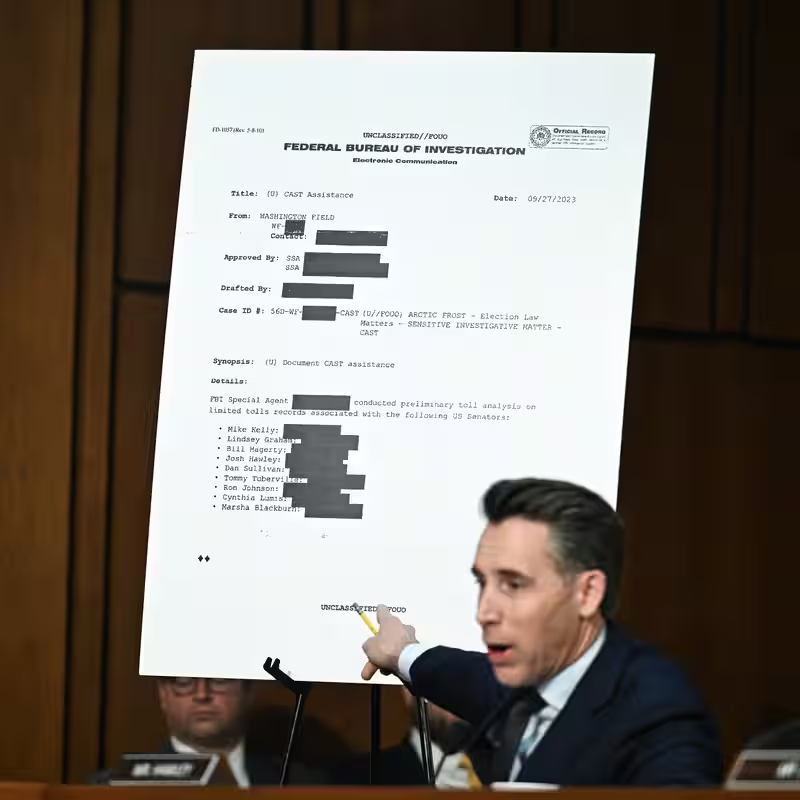Table of Contents
- Heated Senate Hearing Targets Jack Smith
- Phone Records Controversy Explodes
- GOP Senators Cry Foul Over FBI Tactics
- Attorney General Pam Bondi’s Tightrope Response
- What This Means for the Jan. 6 Investigations
- Sources
Heated Senate Hearing Targets Jack Smith
In a dramatic display of partisan tension, Republican senators launched a blistering attack on special counsel Jack Smith during a Senate Judiciary Committee hearing on Monday. The focus? The FBI’s collection of phone records belonging to GOP lawmakers as part of its investigation into the January 6 Capitol riot.
The hearing, which featured Attorney General Pam Bondi as the primary witness, quickly devolved into a political showdown. Senators accused Smith—and by extension, the Biden administration—of overreach, bias, and weaponizing federal law enforcement against political opponents.
Phone Records Controversy Explodes
At the heart of the controversy is the revelation that the FBI obtained call logs from several Republican senators without their knowledge. While the Justice Department maintains the records were gathered as part of a lawful investigative process tied to Jan. 6, GOP lawmakers argue the move crosses a dangerous line.
“This isn’t just about data—it’s about targeting elected officials for their political views,” said Sen. Josh Hawley (R-Mo.). “If this can happen to us, it can happen to anyone.”
GOP Senators Cry Foul Over FBI Tactics
Multiple Republican senators used the hearing to amplify long-standing claims that the Department of Justice has become politicized under President Biden. They pointed to Jack Smith’s dual investigations into former President Donald Trump—covering both the Jan. 6 events and classified documents—as evidence of selective prosecution.
“Jack Smith’s team is fishing with a net so wide, they’re dragging in constitutional rights along with it,” said Sen. Ted Cruz (R-Texas). “This is not law enforcement—it’s political warfare.”
Democrats on the committee pushed back, arguing that no evidence has emerged showing improper motive or illegal conduct by the special counsel’s office. They emphasized that subpoenas for phone records are a routine part of complex investigations.
Attorney General Pam Bondi’s Tightrope Response
Attorney General Pam Bondi, appearing before the committee for the first time since her confirmation earlier this year, walked a careful line. While defending the independence of the Justice Department, she acknowledged the sensitivity of collecting data from sitting lawmakers.
“The department follows the facts, not politics,” Bondi stated. “But I take seriously the concerns raised about oversight and transparency when it comes to investigations involving members of Congress.”
She stopped short of committing to new restrictions on such data collection but promised to review internal protocols.
What This Means for the Jan. 6 Investigations
The phone records dispute adds fuel to an already volatile debate over the future of the Jan. 6 probes. With the 2026 midterms on the horizon, Republicans are framing the investigations as partisan vendettas—a narrative they hope will resonate with voters.
Meanwhile, legal experts caution that while the collection of metadata (like call times and numbers) is legally distinct from wiretapping, it still raises legitimate privacy and separation-of-powers questions when applied to legislators.
As Jack Smith’s team continues its work, the political fallout from this clash may prove just as consequential as any courtroom outcome.




